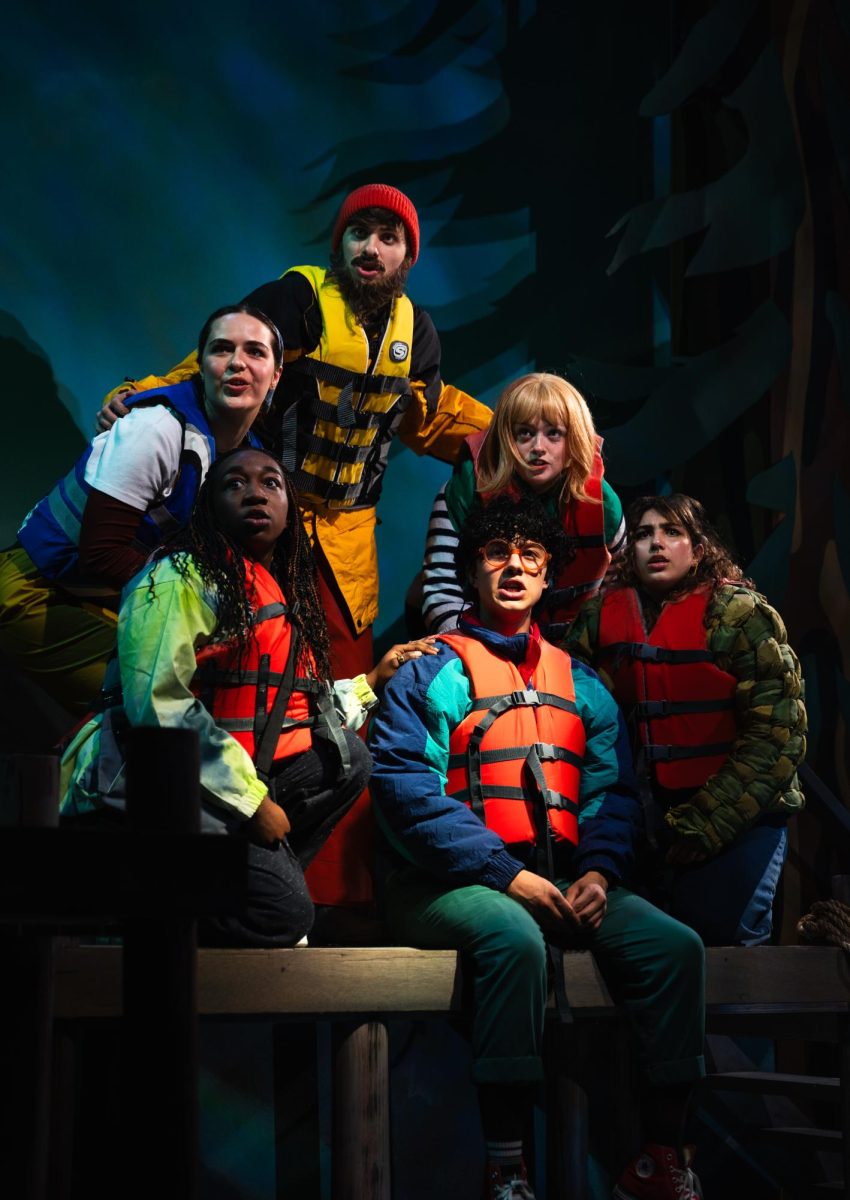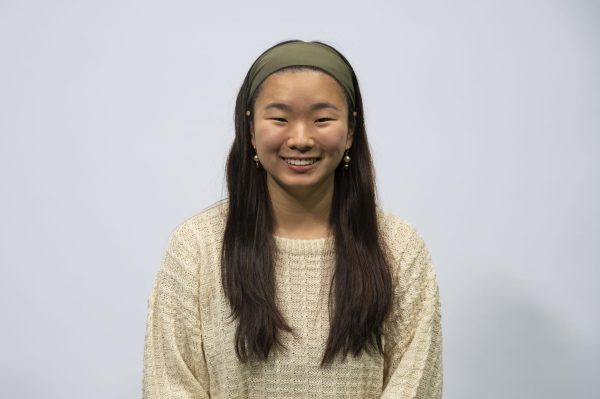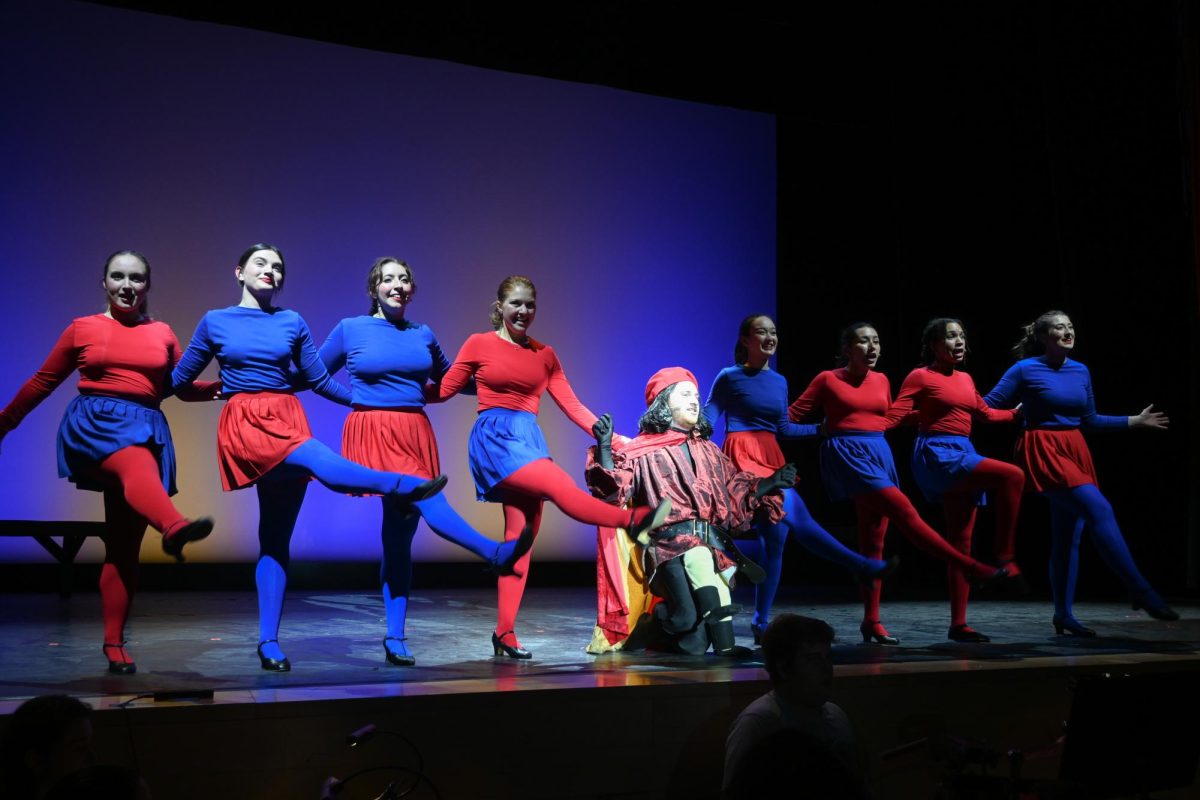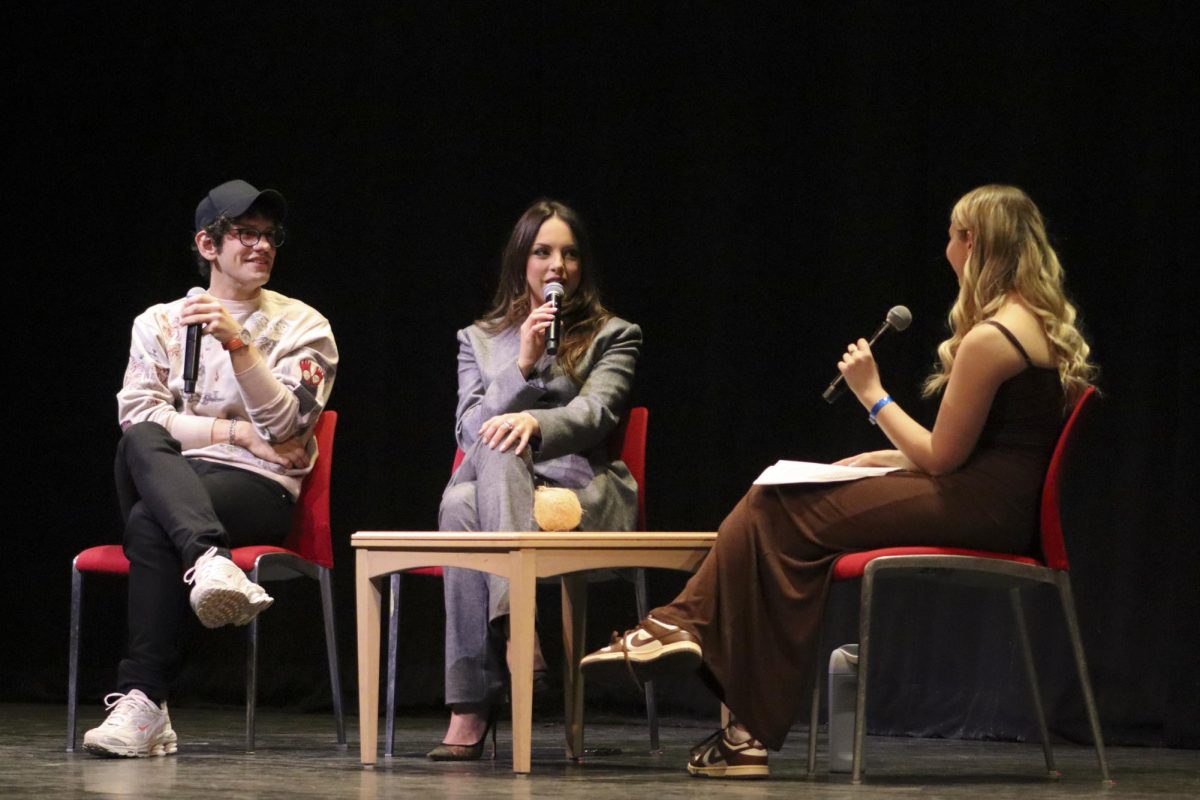When the climate crisis causes the end of the world, people will still need to get their hair cut.
Directed by Melinda Lopez, “Sävë thë Whälës, etc.” is an environmental comedy featuring an ensemble cast of six characters. The play will run from Oct. 23 to 27 at The Studio Theatre in Curry Student Center. Lopez, a professor of the practice in Northeastern’s Department of Theatre, fell in love with the play written by her former student, David L. Caruso.
“It’s a gentle, loving comedy about climate change,” Lopez said. “I loved its odd and quirky sense of humor, and it’s just full of these wonderful funky characters, and it does things theatrically that I hadn’t seen done before.”
The play follows two American tourists, Morgan (Brenna Thornton) and Lyra (Naz Ozturk), and two Canadians, Pierre (Mer Brown) and Robin (Daniel Lopez), who take a tour of the last glacier on Earth, accompanied by tour guides Todd (Antonio Weissinger) and Pony (Emily Rosakranse). Each duo in the play represents a unique perspective on climate change — for the Americans, the tour of the glacier is a reminder of the world before the crisis. For the Canadians, the glacier holds the power to save the world.
Much of Caruso’s family lives on Madeline Island in northern Wisconsin, a place that he called an “eco-tourism town.” Caruso said visitors kayak between the islands of the archipelago and often camp there. In November 2021, during his second year of graduate school for playwriting at Boston University, Caruso started piecing together scenes about a similar climate haven.
“What is the most ridiculous thing you could go on a vacation for? It seems kind of like going to the last glacier on earth and just watching it melt,” Caruso said. “That is literally happening — people are going to glaciers on vacation to see them before they’re gone, basically. And it’s also kind of … ridiculous and passive and funny and tragic and all of these complicated things.”
Set in Newfoundland, Canada, “Sävë thë Whälës, etc.” strikes an interesting balance between cheerful and heart-wrenching. This contrast is woven throughout every scene, with characters dancing at one moment and fighting with each other the next. The play explores complex relationships, namely between mother-daughter duo Morgan and Lyra. They bicker and argue in every scene, even on the boat ride over to the glacier, but underneath the surface tension of their relationship, there is a deep love for each other. While they both have accepted the ending of the world at the hands of climate change, the two Canadian friends, Pierre and Robin, visit the glacier often and believe it can give them the solution to the problem.
When Caruso wrote the play, he wanted to show the characters having normal conversations set against the backdrop of a new world. Even in the apocalypse, people will still live their normal lives, they will still go to work and they will still have to get their hair cut.
“The play really tries to marry those two things,” Lopez said. “The ordinary experience of being alive and the epic, enormous experience of a future where it’s always summer.”
The play takes place sometime in the near future. The costumes, brightly colored and created with upcycled materials, look similar to current American fashion but with a distinctly futuristic twist, while the dialogue feels familiar and present. The teenagers use TikTok. The mother reminisces about the 1980s. The set features vibrant colors that take inspiration from Wes Anderson films. Lopez wants nostalgia to be an overriding theme of the play, he said, and incorporates a soundtrack of “syrupy, sappy and happy” music, including “Top of the World” by The Carpenters, as a counterpoint to the hard times the characters are facing in the play.
Lopez and the cast are excited to bring the play to life for the first time since Caruso finished writing it for his thesis. Part of the reason why Lopez chose to direct this production of “Sävë thë Whälës, etc.” is because of the audience it caters to: college students.
“The overwhelming number of most [theatre] audience members are older,” Lopez said. “There are a lot of wealthier people that go to the theatre, and [Caruso] wanted to write a play for his friends… So the play really centers [around] folks who are the same age, or maybe a little older than Northeastern students.”
Brenna Thornton, a fifth-year communication studies and theatre combined major who portrays Morgan, hopes the play will resonate with students and become a conversation starter about what life might look like in the not-so-distant future.
“Bringing [climate change] down to a level that’s not huge and scary and unattainable can help facilitate conversation,” Thornton said. “Art about it hopefully makes it easier to have productive conversation that leads to action.”











